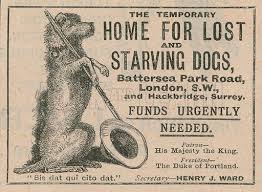Ep. 3: Immediate Impacts
Episode 3: Immediate Impacts

A piece of legislation is only as good as its enforcement, and, with no police force yet to call upon, Richard Martin characteristically took it upon himself to arrest individuals, prosecute them, and then take them to prison. In that first year, sixty-three court cases of animal abuse were brought, including by Richard Martin himself.
The establishment of the Society for the Prevention of Cruelty to Animals (SPCA) would also have immediate consequences. This episode explores some of them: the founding of SPCAs around the world, including in the United States, under the auspices of Henry Bergh, whom we meet in this episode; the creation of Battersea Dogs Home in 1860; and the failure of the Cruelty Act of 1860. We also meet the personalities who were to found the SPCA—including the Rev. Arthur Broome, and, in particular, Lewis Gompertz, who was not only the only Jew among the SPCA’s Christian founders but the sole vegan.
We also look at the Pease Act of 1835 and subsequent pieces of legislation for animals through the nineteenth century, tracking the legacy of Martin’s Act and the development of sentiment for animals both public and private before the death of great animal supporter Queen Victoria, in 1901. Along the way, we’re introduced to two giants of the era: Henry Bergh, founder of the American Society for the Prevention of Cruelty to Animals; and Frances Power Cobbe, who brought public attention to the issue of vivisection (live experimentation) of animals in laboratories.
Extended Interviews



